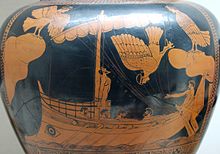Dietrich Schwanitz’ book (Wikipedia) covers “Wissen” und “Können” against the background of the German “Bildungskanon”, the liberal education of a cultured, well-bred German-speaker. The very ambition of the endeavor is breath taking and provokes disagreement and objection. But Schwanitz delivers. A lengthy book of nearly 700 pages it is concise and dense and contains lots of food for thought.
Among hundreds of tidbits, here are some:
- Footnote on the footnote (pp. 461–462).
- On Switzerland (p. 596):
Was die Schweizer auf dem Hintergrund ihrer eigenen Geschichte bei den Deutschen am wenigsten begreifen, ist, daß sie mit der antiautoritären Kulturrevolution alle bürgerlichen Tugenden so restlos über Bord geworfen haben. Es sind die Tugenden, die ehemals als besonders deutsch galten und jetzt nur noch in der Schweiz eine Heimstatt haben: Solidität, eine gewisse Ordnungsliebe und Pedanterie, Zuverlässigkeit im Ausführen von Aufgaben und Präzision bei der Produktion von Apparaten, und ein Standard der Sauberkeit und Wohlanständigkeit weit über dem europäischen Durchschnitt sowie ein fest verankerter Glaube an Normen und Regeln.
- In the section about intelligence, a ranking of what might have been the 10 most intelligent men ever (p. 604):
1. John Stuart Mill; 2. Goethe; 3. Leibniz; 4. Grotius; 5. Macaulay; 6. Bentham; 7. Pascal; 8. Schelling; 9. Haller; 10. Coleridge.
- Short summaries of “books that changed the world” (pp. 635–654).
















